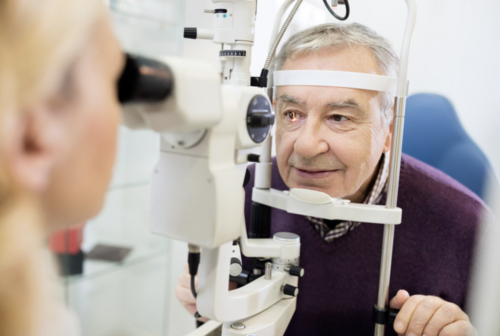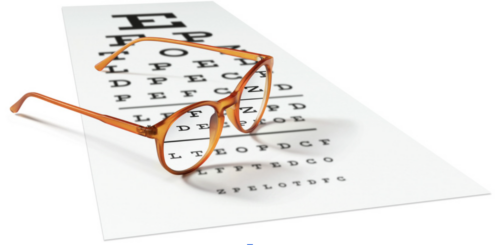
Understanding Cataracts and Cataract Surgery
Cataracts occur when the clear film over the lens of the eye becomes cloudy, obstructing the vision. Cataracts obstruct the vision differently depending on their size and location. There are three types of cataracts which each affect different areas of the lens:
- Nuclear: This type forms in the middle of the lens, making your direct field of vision appear cloudy and blurry.
- Cortical: This type is wedge or streak-shaped and begins on the side of the lens and then gradually grows toward the center. You may experience patchy or inconsistent blurriness as opposed to an overall haze.
- Posterior subcapsular cataracts: This type forms at the back of the lens and causes disproportionate vision loss in bright light because it causes the light to scatter.
During surgery, the surgeon makes a small incision at the front of the eye to remove the cataract and then replaces it with an artificial Intraocular Lens, or IOL. Following this, a protective device is placed over your eye and you will be prescribed two types of eye drops: antibiotic and anti-inflammatory.
Cataract surgery is performed with two different methods: Phacoemulsification and extracapsular. Phacoemulsification, the most common form of cataract surgery, uses ultrasonic waves to break up the cataract and then remove it through a small incision. Extracapsular surgery removes the cataract as one piece through a larger incision.
How Many Days of Rest Are Needed After Cataract Surgery?
Your eyes will heal in two stages. In the first stage, the incision made to remove the cataract closes up, usually within 24 hours. In stage two, the smooth barrier underneath the surface of the eye heals, which can take between four to six wee ks.
Common symptoms after surgery include mild discomfort, redness, blurred vision and a scratching sensation in the treated eye. These typically last a few days after surgery and resolve on their own within the following weeks. If your symptoms persist beyond the expected timeframe, you should contact your doctor or call 911 for any sudden onset or severe changes in symptoms.
You’ll need to visit your surgeon 24 hours after surgery and schedule another follow-up appointment in two weeks. During these visits, your surgeon will advise you as to when you can resume work and other daily activities.
How Long After Cataract Surgery Can You Resume Normal Activities?
These are some basic suggestions of normal activities and a timeline for when you can resume them:
- Reading and Watching Television: These activities can be resumed within a few hours after surgery.
- Bending Down: Avoid bending down at the waist during the first 72 hours after surgery.
- Strenuous Activities: Activities such as biking, running, tennis, golf and sex should be avoided for one week after surgery. Swimmers should wait at least two weeks before getting back in the water due to strain and risk of infection.
Resuming your schedule of prescription medications, medical visits and scans such as MRIs, X-Rays and CT scans can occur any time after surgery. Eye drops are also generally safe to use immediately after surgery. However, it’s always important to discuss resuming any of these activities with your surgeon.
Guidelines for Driving Post-Cataract Surgery

Your doctor will provide you with personal guidance on a good timeline for getting back to driving at your follow-up appointments. Everyone’s healing process is unique and it is especially important to discuss a recovery and return-to-driving plan with the surgeon based on your individual healing and needs.
Factors That Influence Your Ability To Drive After Cataract Surgery
Your vision prior to surgery, if you are having your other eye treated soon, the type of lens you received and your overall health status are all factors that help determine how soon you can drive after cataract surgery. Your surgeon may advise you to wait to drive longer than the suggested timeframe of two weeks due to the following:
- Your Other Eye’s Vision: If your other eye is also affected, your return-to-driving timeline may need to be extended.
- Age and Overall Health Status: Age, health status and conditions like diabetes can contribute to longer recovery times after surgery.
- Intraocular Lens Type: Lenses such as toric, extended vision, bifocal and multifocal lenses all help to decrease the need for glasses after surgery but can affect recovery time.
- Type of Cataract Surgery: While both surgery types are safe and effective, their recovery times vary slightly due to differences in surgical techniques.
How Long After Cataract Surgery Can You Drive at Night?

Tips for Better Healing and Safe Driving After Cataract Surgery
It’s important that you take things slowly and rest after cataract surgery. To optimize healing and safe driving, wear sunglasses when you’re outside during the day, avoid bending over for the first 72 hours after your surgery, use your prescribed eyedrops as directed and wear eye protection while showering or bathing.
You may need a new prescription for glasses or contacts after surgery. If you have a prior prescription for glasses and need to drive before getting new ones, wear the previous set and remove the lens on the side of the treated eye. If you wear contacts, you can wear a contact lens only in the eye that wasn’t operated on, leaving the treated eye untouched.
Comprehensive Eye Care for Better Eye Health
UCF Health Faculty Physician Practice offers services for several ophthalmological conditions including the treatment of macular degeneration, dry eye and cataract surgery. We have comprehensive care pre- and post-cataract surgery allowing you to smoothly transition back into all areas of your daily life. Our board-certified Ophthalmologists, Dr. Monika Farhangi, M.D. and Dr. Mehul Patel, M.D., M.Sc., are passionate and knowledgeable physicians devoted to providing you with quality, comprehensive care.
